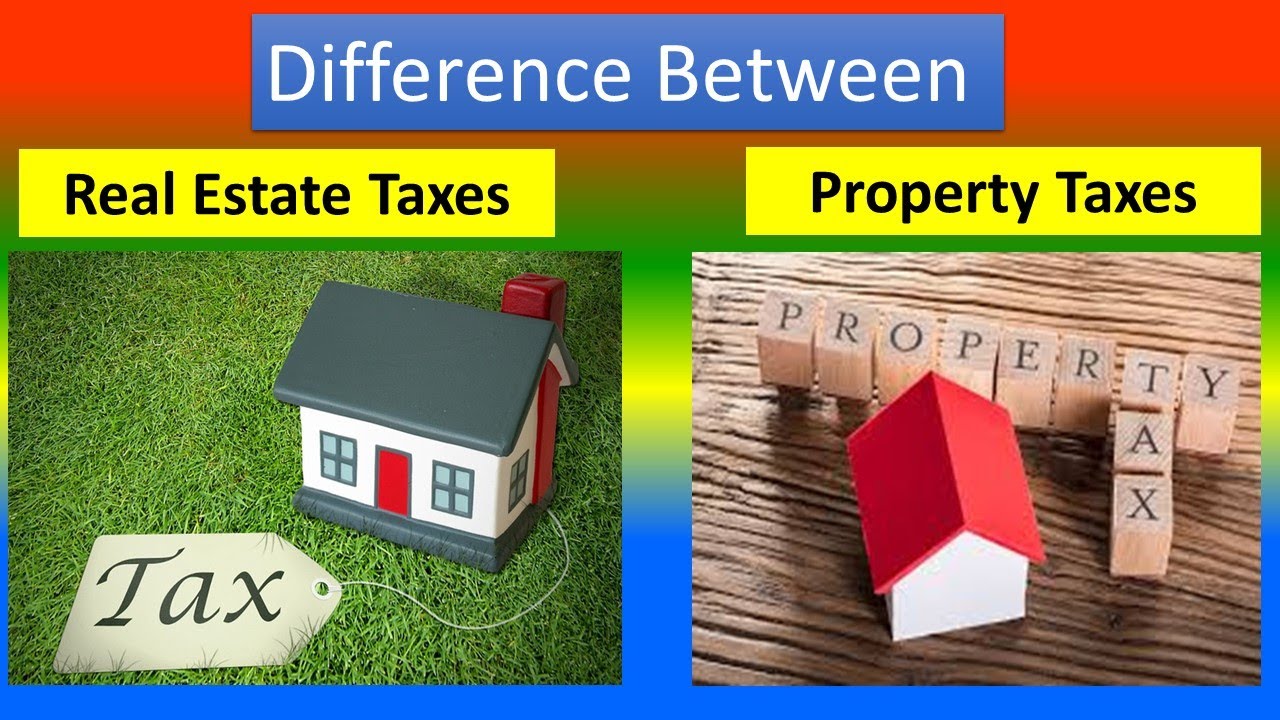Are Real Estate Taxes and Property Taxes the Same

Introduction:
Understanding the nuances of real estate and property taxes is crucial for homeowners and investors alike. However, confusion often arises regarding the terms "real estate taxes" and "property taxes." In this blog, we will delve into the key differences and similarities between these two types of taxes, helping you gain clarity on their distinctions and implications.
Defining Real Estate Taxes:
Real Estate Taxes: Real estate taxes, also known as real property taxes or ad valorem taxes, are levied on the value of real property, which includes land and any structures or improvements on it. These taxes are typically imposed by local governments, such as municipalities or counties, and are used to fund public services and infrastructure.
Understanding Property Taxes:
Property Taxes: Property taxes are a broader category of taxes that encompass various types of taxes levied on different types of properties. While real estate taxes are a subset of property taxes, property taxes can also include taxes on personal property, such as vehicles, boats, or business assets.
Common Elements:
Overlap in Terminology: Real estate taxes and property taxes are often used interchangeably, leading to confusion. This is primarily because real estate taxes make up a significant portion of property taxes. Both taxes relate to the ownership and use of real property and involve payment obligations to local government authorities.
Key Differences:
Scope of Taxation: Real estate taxes focus solely on the value of the land and improvements, such as buildings or structures, on the property. Property taxes, on the other hand, can include real estate taxes as well as taxes on personal property assets.
Tax Assessment: Real estate taxes are calculated based on the assessed value of the property, which is determined by the local tax assessor's office. This assessment considers factors such as the property's market value, location, and size. Property taxes may involve separate assessments for different types of property, such as land, buildings, and personal property assets.
Implications and Payment:
Liability and Payment: Both real estate taxes and property taxes impose a financial obligation on property owners. The liability for these taxes falls on the property owner, and failure to pay can result in penalties, interest, or even legal action. Payment methods and schedules can vary depending on local regulations and tax authorities.
Utilization of Tax Revenue: The revenue generated from real estate and property taxes is crucial for funding local government services and public infrastructure. These funds are used to support schools, parks, road maintenance, emergency services, and other community initiatives.
Conclusion:
While real estate taxes and property taxes are often used interchangeably, they have distinct differences in terms of scope and assessment. Real estate taxes specifically focus on the value of land and improvements, while property taxes encompass a broader range of taxes, including taxes on personal property. Understanding the differences between these taxes is essential for property owners to fulfill their tax obligations and make informed financial decisions. It is advisable to consult with local tax authorities or seek professional advice to ensure compliance with relevant tax regulations and to gain a comprehensive understanding of the specific tax requirements in your jurisdiction.
